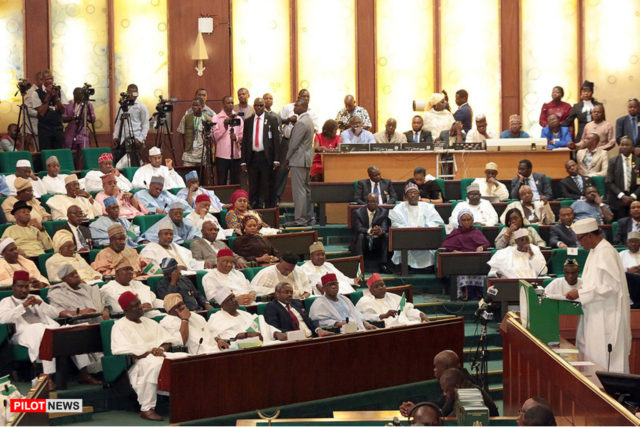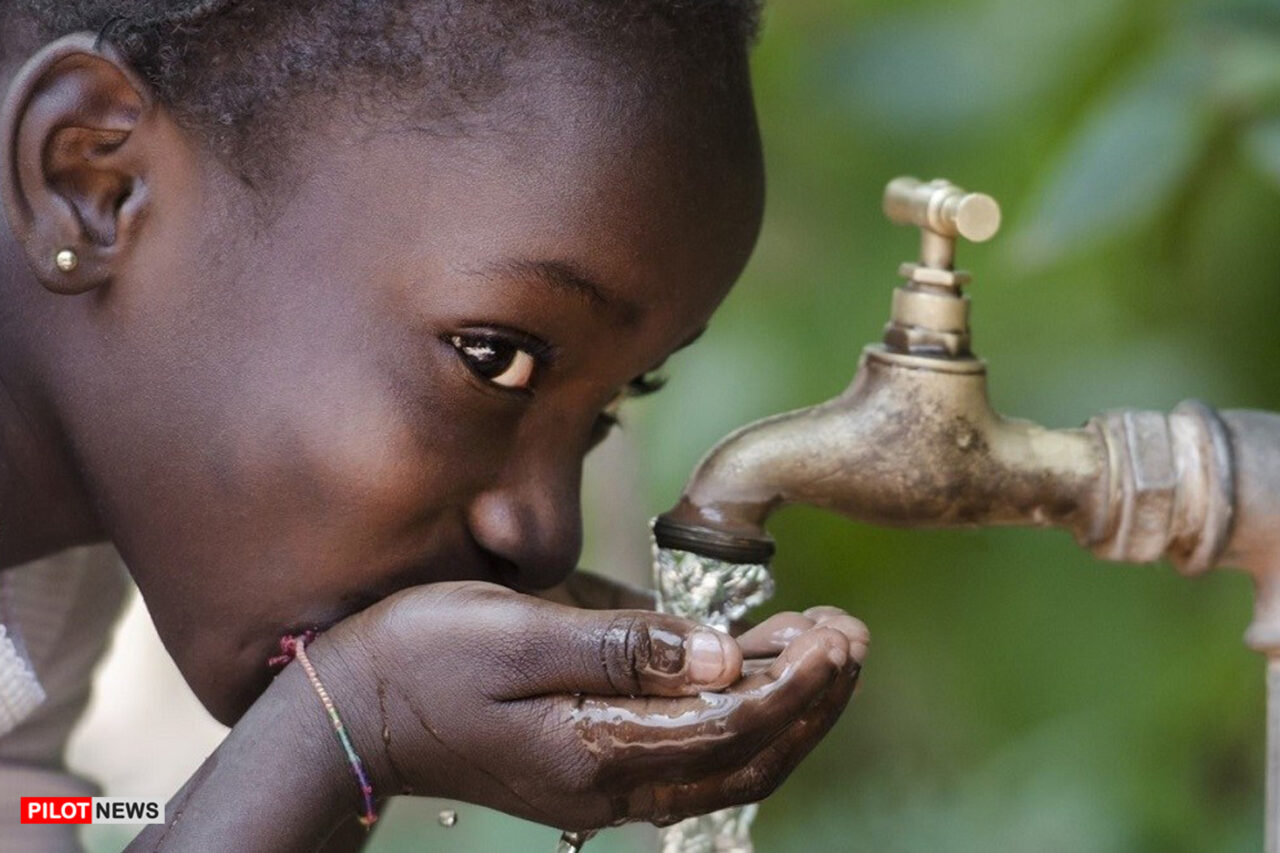The Federal Government on Tuesday reiterated its insistence for the realization of the National Water Resources Bill 2020, adding that the majority of Nigerians opposing the bill are doing so because they have access to media.
The FG said it would go ahead and ensure the passage of the bill because it is for the food of the country.
The Minister of Information and Culture, Alhaji Lai Mohammed, made the firmed position at a press conference he jointly addressed with the Minister of Water Resources, Suleiman Adamu, in Abuja.
He added that the critics of the bill were not well informed because they have not read the content of the bill.

Prominent Nigerians and groups including the Nobel Laureate, Prof. Wole Soyinka, the Ohanaeze Ndigbo, Afenifere and the Nigeria Labor Congress (NLC) had kicked against the reintroduction of the bill, adding that it was a plot by President Muhammadu Buhari to seize people’s water resources for Fulani herdsmen.
Mohammed on Tuesday said those condemning the bill either had not read it, did not understand its provisions, or rejecting it out of mischief.
Adamu on his part said the bill was never rejected by the eight Senate as being speculated in some quarters.
Mohammed said, “You asked if the government will go ahead with the bill despite the criticism by people and we have just told you that the bill is for the good of the nation.
“Who are the people that you said are against the bill? They are people who have access to the media. There is nothing that concerns the people of my village or people of your village with this bill.”
Mohammed added that the bill was for the good of the nation, adding that there was no hidden agenda whatsoever.
He said, “We cannot rule out deliberate mischief by some of those who have been portraying the bill as a new source of conflict.
“We are, therefore, using this opportunity to appeal to Nigerians to avail themselves of the provisions of the bill to avoid being misled by those who have chosen to politicize it.”

“When passed into law, the National Water Resources Bill 2020 will provide for the enhancement of Nigeria’s water sector in line with global best practices.”
Mohammed faulted the claim of the critics, adding that there was nothing new about the bill which he saw as an amalgamation of water resources laws that had been in existence for a long time.
He listed the existing laws that made up the bill, it included the Water Resources Act, Cap W2 LFN 2004; the River Basin Development Authority Act, Cap R9 LFN 2004; the Nigeria Hydrological Services Agency (Establishment) Act, Cap N1100A, LFN 2004; and the National Water Resources Institute Act, Cap N83 LFN 2004.
He disclosed that different laws were being re-packaged as the National Water Resources Bill 2020 because they were being re-enacted with necessary modifications to bring them in line with the current trend in the global world and practices in integrated water resources management.
Mohammed explained that “The bill provides for professional and efficient management of all surface and groundwater for the use of the people (i.e. for domestic and non-domestic use, irrigation, agricultural purposes, generation of hydro-electric energy, navigation, fisheries, and recreation).
“The bill will ensure that the nation’s water resources are protected, used, developed, conserved, managed and controlled in a sustainable manner for the benefit of all persons.
“Among other benefits, the bill provides for the creation of an enabling environment for public and private sector investment; provides for capacity building processes to foster good governance; establishes water use and licensing framework to ensure sustainable financing for water sector development from tariffs.
“The first thing to say is that many of those criticizing the bill has not even bothered to read its provisions, thus depending on second-hand information to reach their conclusions. Those who have read it have perhaps done so perfunctorily.”
The Minister responded to some of the points of the critics of the bill, “with a view to clearing any misgiving and also enlightening Nigerians.”
On the claim that the Federal Government would take over the nation’s water resources by licencing and commercializing the use of water, the Minister said that was not the intention, saying that the current Water Resources Act, 2004 already makes provision for such.
He said, “This bill is only trying to provide a framework for implementing that provision. The regulatory provisions of the bill require that commercial borehole drillers obtain a license.
“The Code of Practice for Water Well Drillers issued by the Standards Organization of Nigeria and the NWRI in 2010 already requires this.
“The code provides technical requirements that a driller must possess to undertake drilling as well as information on such borehole to be provided to the national database.
“That code however requires the license to be issued by the NWRI in Kaduna. This bill provides for such licenses to now be issued by the states, under delegation of the national regulator, the Water Resources Regulatory Commission.”
He added that the borehole regulation was an international standard for the abstraction of large volumes of water, saying that African countries regulate commercial abstraction.
He added that regulating abstraction of large volume of water is necessary because groundwater abstraction is an activity that has both environment and ecological implications.
Responding to critics who says the bill would prevent Nigerians from accessing potable water, citing Section 75 for their argument, he explained that a technically-competent driller should not be afraid of obtaining a license.
The Minister also responded to critics who have argued that the bill was illegal based on judgement of the Supreme Court, which said that the power of physical planning in any state of the federation was exclusively vested in the state government, adding that the National Assembly lacked power to legislate on the physical planning except that of the FCT.
Mohammed said, “This is not a physical planning bill. This bill only relates to the management of water resources that cross state boundaries.
“The constitution already grants the federal legislature this responsibility (item 64, Exclusive Legislative List, CFRN 1999).
“The Water Resources Act, 2004 lists the water bodies to which the Act applies. This is maintained in the bill. The interaction of the Federal Government with the state is only as it concerns the management of the inter-state water that passes through the state.
“The bill does not apply to water that is wholly within the boundaries of a state. The bill also does not apply to land. It clearly states that land required by any of the institutions established in the bill will be obtained in accordance with the Land Use Act (i.e with Governor’s consent).”
He also responded to the notion that if the bill is passed into law, it would clip the wings of state, local government authorities, and individuals from making use of water in their backyards without permission from Abuja, Mohammed said, “Communities on river banks are guaranteed undisturbed use of water as stated in Section 3 of the bill.
“Also, all occupiers of land are guaranteed the right of abstraction for domestic and sustenance, whether by borehole or rivers.
“Section 3 reiterates the right of persons to continue to access water without charge for subsistence and preserves existing customary rights to water. (see Sections 1, 2, and 3 of the Bill). Section 2 of the Water Resources Act, 2004 is reproduced.”
In replying the criticism that the bill was aimed at taking the water resources of a certain part of the country for the use of herders or that the Federal Government was seeking the implementation of Ruga by subterfuge, he said, “This is not the intent of the bill and it is not even possible as the bill reiterates the fact that land can only be acquired by any of the institutions established in accordance with the Land Use Act.”
The Minister of Water Resources in his defense that the bill was never rejected by the eight Senate as being speculated in some quarters.
He cleared that the upper chamber of the National Assembly only set up a committee to look at the issues being raised by stakeholders on the bill.
He said, “The House of Representatives passed the bill and sent it to the Senate for concurrence. Senators asked questions. This was within their rights to do so.
“The Senate did not throw out the bill in 2018. What it did was that it constituted a committee to look into the issues raised and report back. Before the committee could report back, 2019 election came.
“When I was returned as minister after the election, I felt I should return the bill to the National Assembly.
“There was no subterfuge. We followed due process. It is not a Buhari bill. It is a water bill for Nigeria.”


